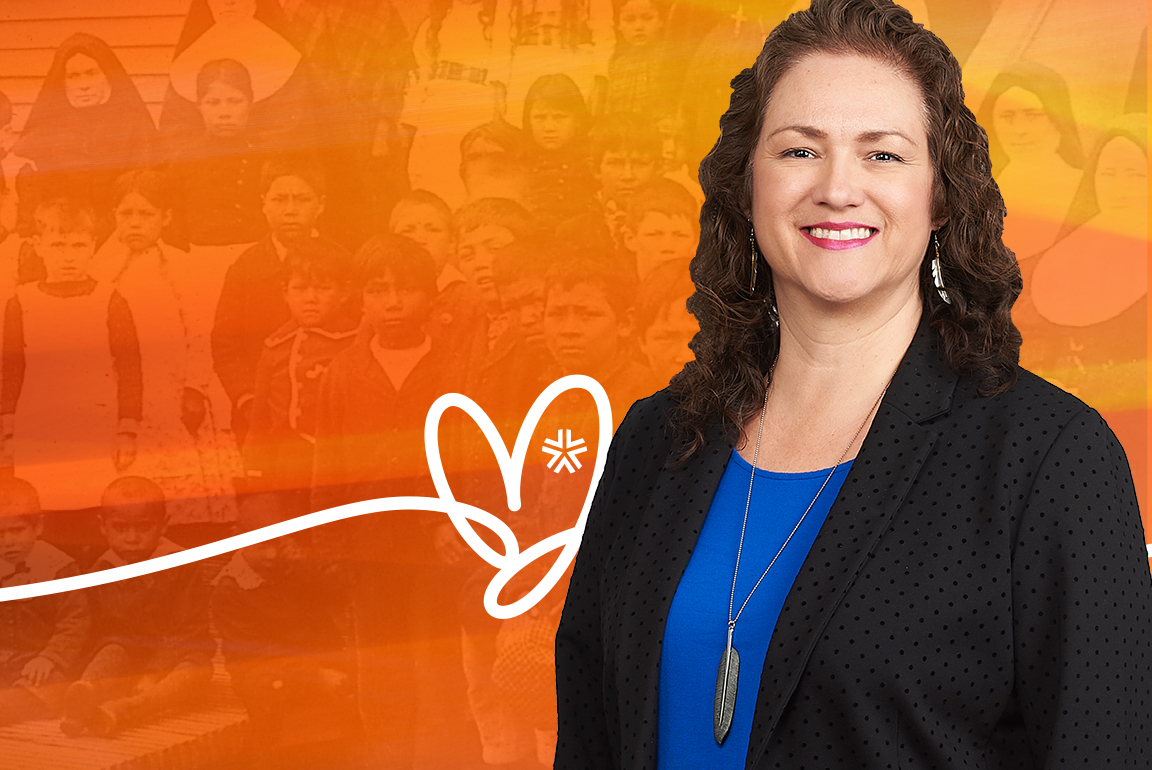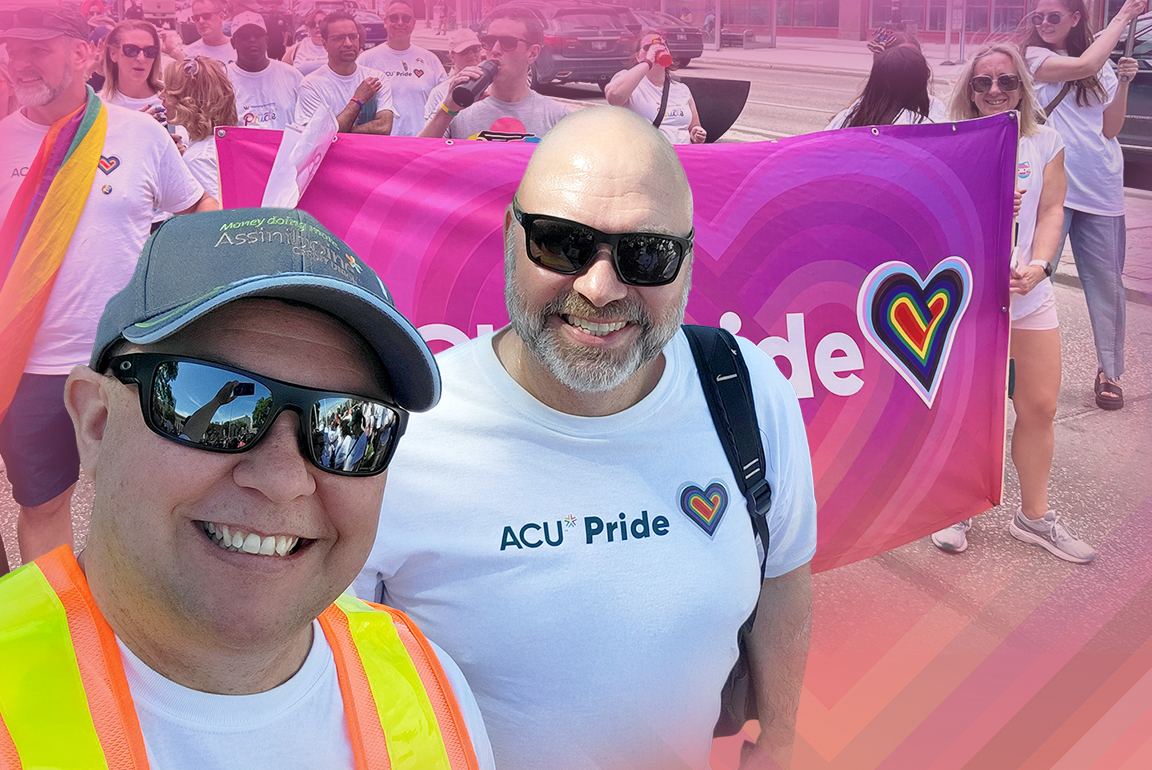Posted: September 27, 2022 by Asterisk Blog in Community stories, 94 calls to action, : National Day for Truth and Reconciliation, ACU Board of Directors, ACU's Indigenous Leadership Circle, Crystal Laborero, Indian Residential School Survivors, Indian residential school system, Indigenous Leadership Circle, Kairos blanket excerise, Money doing more, National Day for Truth and Reconciliation, National Reconciliation Gathering, NDTR, Orange Shirt Day, Reconciliation, Reconciliation Canada, September 30, Truth and Reconciliation Commission of Canada (TRC), Winnipeg Indigenous Accord
How you can participate in the National Day for Truth and Reconciliation
The topic of this article is a difficult subject to address, yet so important for the progression of our communities. It highlights a dark period in Canadian history — one that continues to have far-reaching impacts on victims, survivors and families.
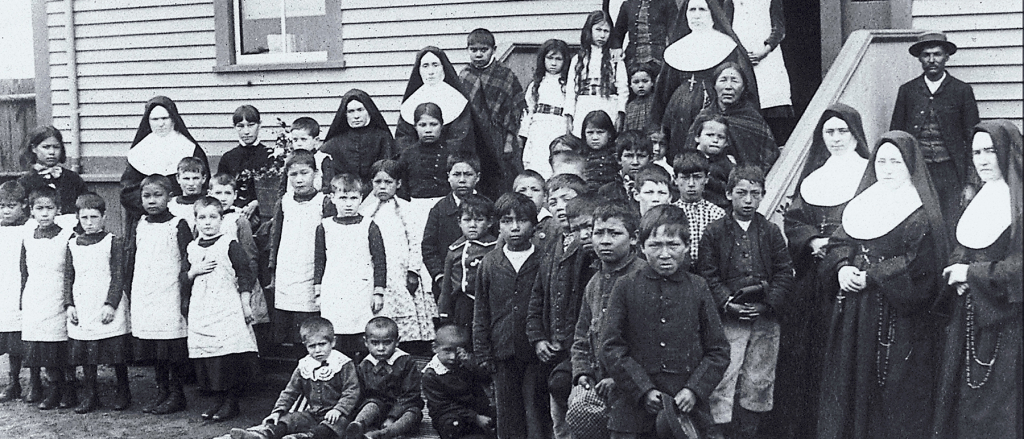
If you’re not familiar with the trauma that the residential school system caused, this article will act as a primer, discuss the actions ACU is taking toward reconciliation, and suggest opportunities for readers to build their knowledge and take action. Together, we can engage with the journey towards truth and reconciliation.
A new day of reflection
In Canada, September 30 is the National Day for Truth and Reconciliation. Now in its second year as a federal statutory holiday, it’s an opportunity to reflect on the harms that our country’s residential school system caused and engage in meaningful steps towards reconciliation.
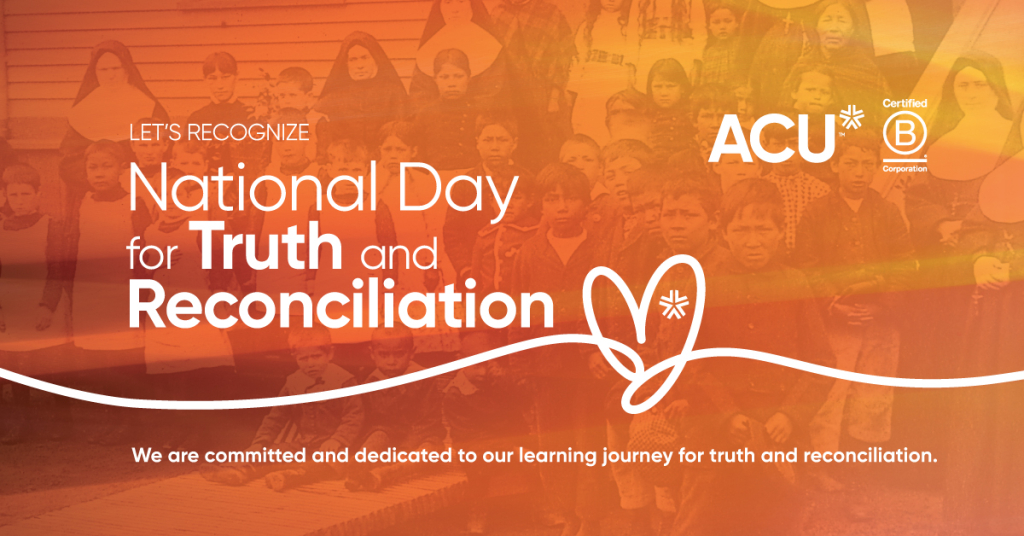
Since 2013, September 30 has also been known as Orange Shirt Day — a grassroots, Indigenous-led initiative that focuses on the children removed from their families to attend residential schools. While both are rooted in highlighting historical wrongs, each is a distinct recognition of the impact of colonialism on Indigenous Peoples in this country.

How the Orange Shirt Day movement impacts everyone, every day
An alignment of shared values

ACU Board Chair, Crystal Laborero, has a first-hand understanding of the impact of this system. As a band member of Sapotaweyak Cree Nation and the first person of her generation to have not attended a residential school, she has intimate knowledge of the intergenerational trauma residential schools created. That’s why she’s focused her career on building support, capacity and services for those she calls the “unbankable.”
Her journey led her to opening the first branch of a Big Five Bank in a First Nations community in Manitoba and becoming the founding CEO of an Indigenous-driven financial services company. As an ACU Board Member since 2011 and Board Chair for the past three years, Laborero joined the organization because she believes Money doing more is greater than a tagline.
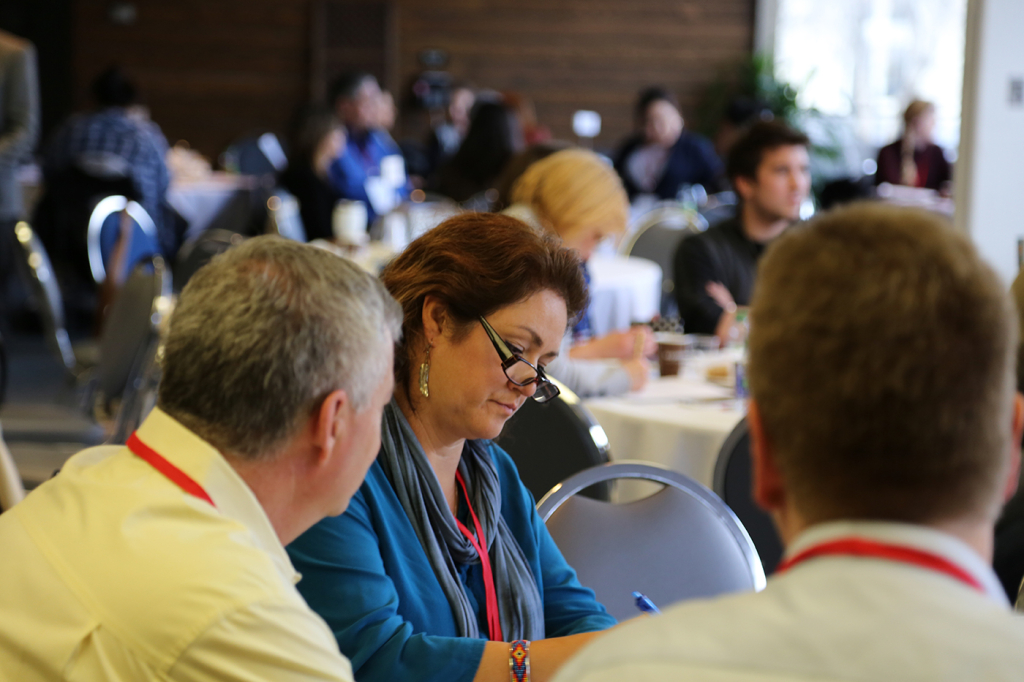
“I’m part of this organization because of its values and commitment to community,” Crystal says. “There’s a subsection of our community that needs support the most. We might be at different places, but we can all work to be better citizens of the world.”
Building on our commitment
As a values-based credit union, our focus is on the well-being and resilience of our members and the communities in which they live. When the Truth and Reconciliation Commission was released, which ran from 2008 to 2015, provided 94 Calls to Action, we reflected on what actions we could take to foster meaningful change.
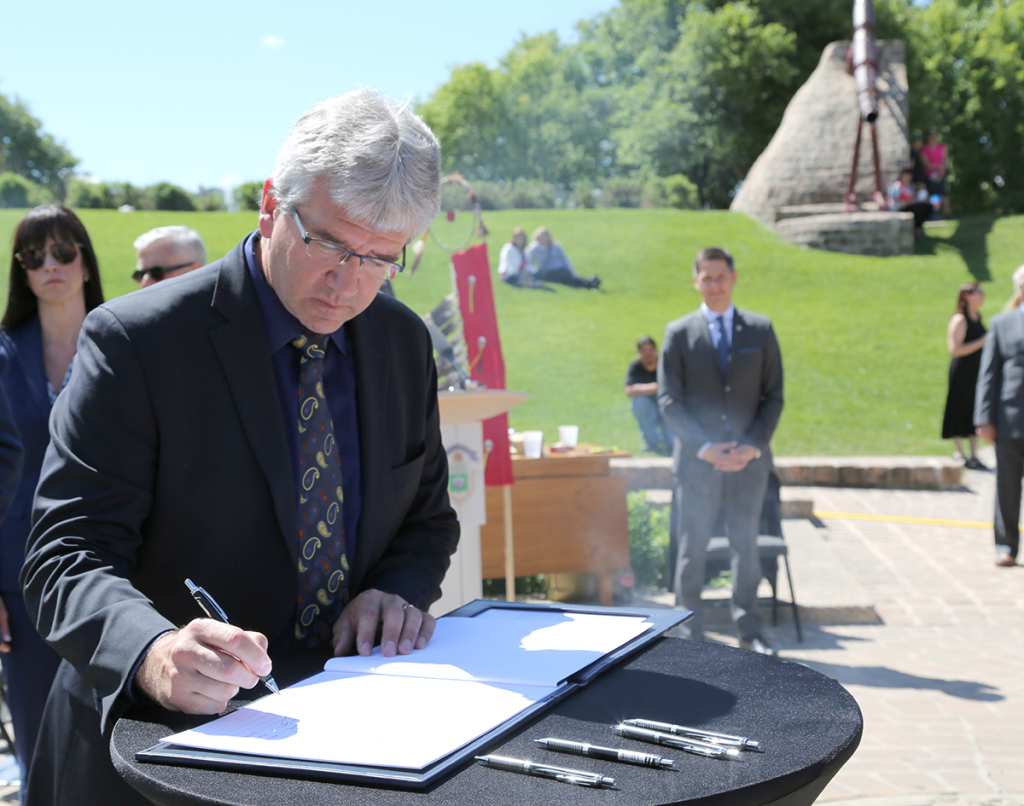
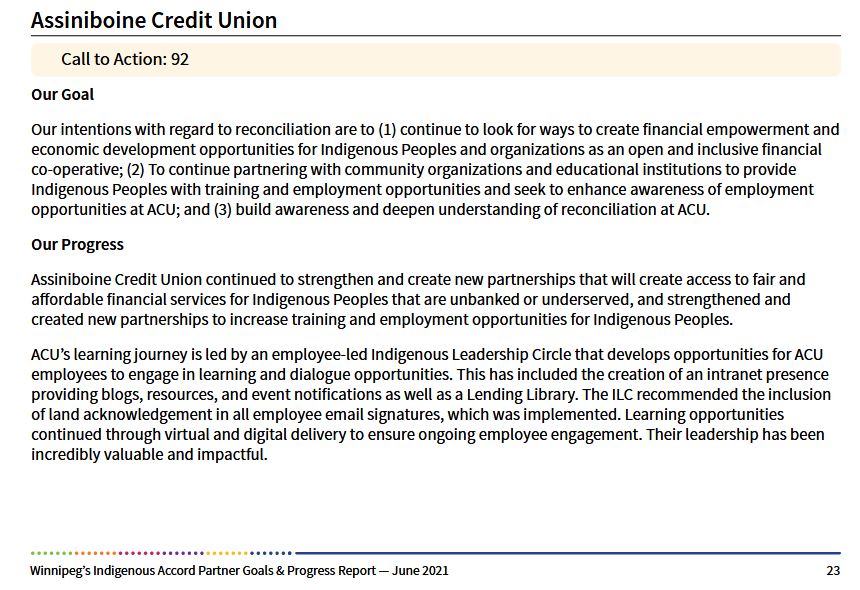
In 2017, ACU became one of the first signatories of the Winnipeg Indigenous Accord — a partnership between the City of Winnipeg, business leaders and community organizations, who share an interest in advancing reconciliation.
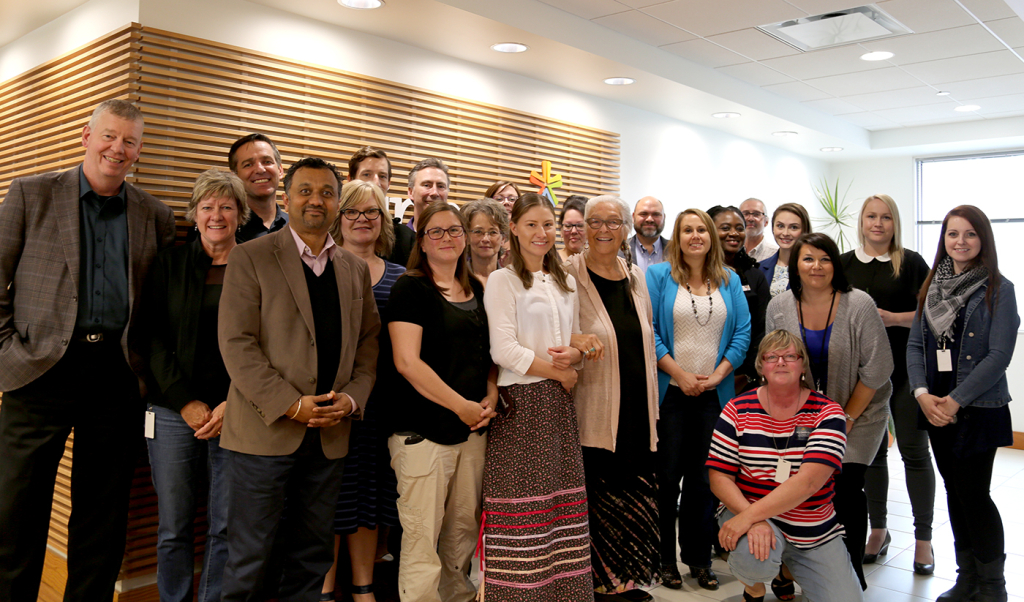
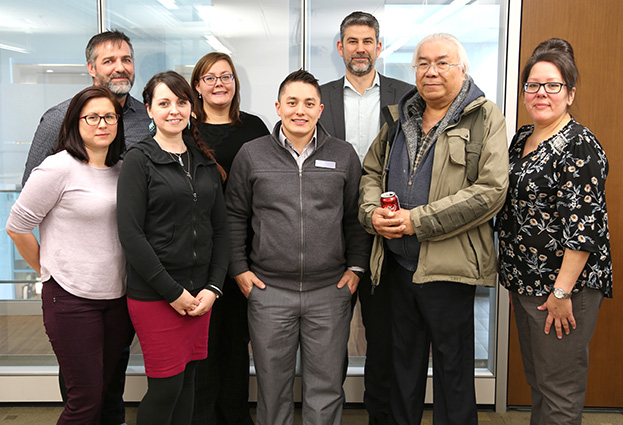
Around the same time, ACU’s Indigenous Leadership Circle was founded as a place for Indigenous employees to make a meaningful impact in the credit union while providing educational opportunities to employees. These include initiatives like the KAIROS Blanket Exercise, Elder talks and regular Feast and Teach learning sessions for employees.
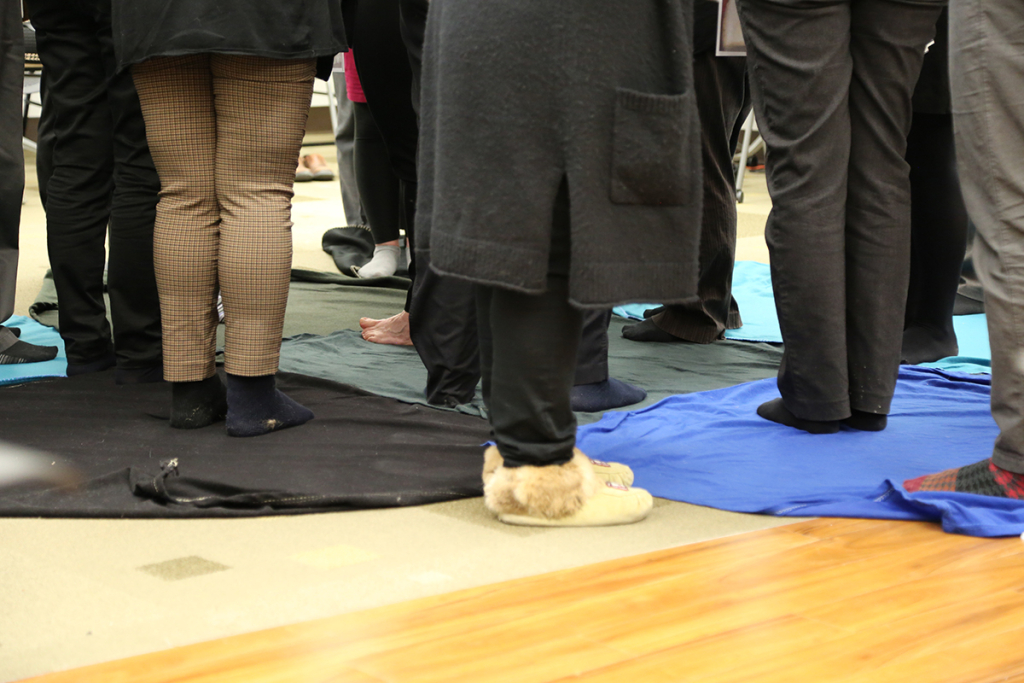
These actions build on a broader commitment to support marginalized populations with the tools they need to rise above their circumstances. One such initiative is Manitoba Tipi Mitawa, a homeownership program developed by the Manitoba Real Estate Association and the Assembly of Manitoba Chiefs. To date, dozens of families have been able to access down payment assistance and, if they need it, financial literacy coaching.
Action starts with understanding
We encourage people who are starting on their path toward reconciliation to begin by visiting The National Centre for Truth and Reconciliation to learn about the legacy of the residential school system. Hearing survivor stories first-hard can contextualize some of the systemic social challenges still facing Indigenous Peoples today. You can also read the Truth and Reconciliation Commission’s Calls to Action to see what actions you can take in your own life.
Crystal suggests that understanding is key.
“I’d encourage people to read about residential schools, their impact and the challenges facing Indigenous People today,” she says. “When you listen to what these communities have been through, it helps you understand their trauma. Understanding the ramifications of those events is the best way we can move forward.”
Walking the path
Being an ally is about making conscious choices: striving to understand, taking action to advance dialogue and choosing to support Indigenous artists and organizations. Some of those organizations are found in the Indigenous business directory — a listing of Indigenous-owned Manitoba companies, Indigenous non-profit organizations and Indigenous economic development agencies, many of which ACU has had the opportunity to partner with to support their vision and growth.
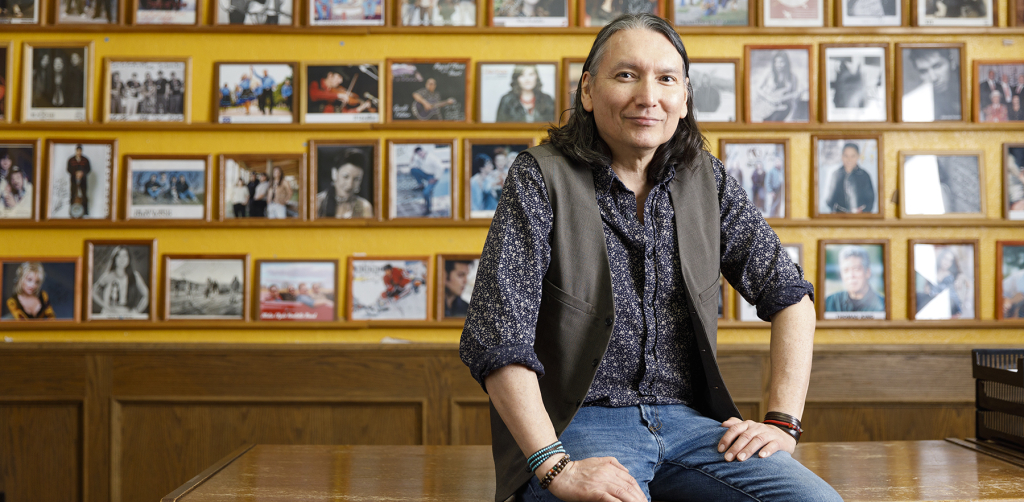
Finally, there is no one right way to process the injustices caused by residential schools.
If you’ve been directly affected by the system and its legacy, resources are available to support you with your healing process. Visit the Hope for Wellness website or reach out to The National Indian Residential Schools Crisis Line for assistance.

How to ensure Indigenous languages don’t go extinct.
Up Next
Community stories
Read more ›
Sustainability: How ACU is turning words into action
A hand holding a seedling
Advice/Perspectives, Community stories
Read more ›
For ACU, Pride radiates outward
“I’ve always wanted to instill a change in the world for the better,” says Cristina McCourt, Financial Account Manager Trainee and member of the ACU Pride Committee, an employee-led resource…
Advice/Perspectives, Borrow, Business growth
Read more ›
Royal Aviation Museum travels to its final destination—with ACU’s help
A stone’s throw from the main terminal of Winnipeg Richardson International Airport you’ll find one of Canada’s hidden gems, where the airplanes are a little more exciting than your typical…
